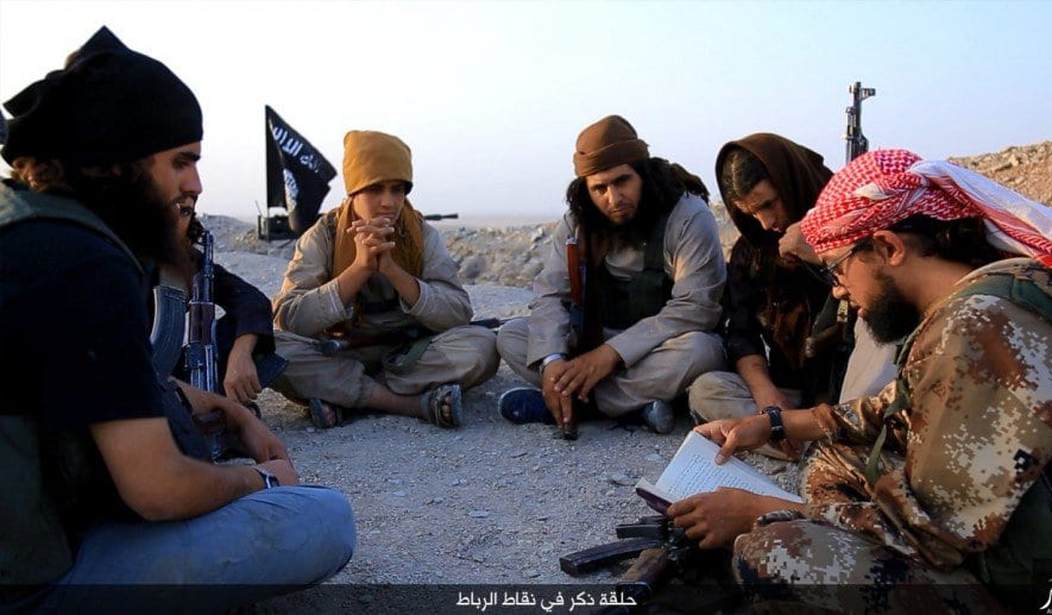WASHINGTON — The State Department’s roundup of global terrorism in 2016 said that despite claims Moscow’s claims to the contrary, Russia did little to fight ISIS while conducting operations in Syria with their ally Bashar al-Assad.
The Pentagon has long disputed Russia’s claims of fighting ISIS. When ISIS’ spokesman and Syria commander Abu Muhammad al-Adnani was killed last August, Russia claimed it was by their airstrike. “From the start, Russia, as you know, has spent most of its time, its military campaign supporting and propping up the Assad regime,” Pentagon spokesman Peter Cook said at the time. “It has not devoted much, if any, effort that we’re aware of targeting ISIL’s leadership. And at the same time, we have not seen the Russian military campaign use precision weaponry on a regular basis as well.” The Defense Department confirmed the following month that a U.S. strike killed al-Adnani.
The new State Department report notes that Russia has “expressed a desire to work with the United States to address terrorist threats,” something cited by President Trump in his reasoning about improving White House-Kremlin relations.
“Despite rhetorical emphasis on operations against ISIS and al-Nusrah Front (al-Qa’ida’s affiliate in Syria), the great majority of Russian airstrikes in Syria targeted the moderate opposition,” the report adds.
The ISIS chapter in the Caucasus has “remained largely inactive,” the State Department said, while the Russian government has estimated 3,500 of its citizens have gone to fight for ISIS in Syria and Iraq.
The Institute for the Study of War, which has been tracking Russian airstrikes throughout its involvement in Syria, said last week that the Kremlin “has reshaped its military campaign in Syria to constrain the U.S.’s current operations and future options.”
“Russia deprioritized its airstrikes against opposition-held terrain in Western Syria following the announcement of four ‘de-escalation zones’ brokered by Russia, Iran, and Turkey on May 6. Russia claimed this shift was a continuation of its supposed counter-terrorism campaign in Syria. Russia’s actual target for this new operational phase is not ISIS or Al-Qaeda, but rather the U.S. and its partners and allies,” said the ISW report. “Russia positioned pro-Bashar al-Assad regime forces to disrupt the U.S. in Syria under the guise of anti-ISIS operations.”
The State Department report said ISIS remains the “most potent terrorist threat to global security, with eight recognized branches and numerous undeclared networks operating beyond the group’s core concentration in Iraq and Syria,” but al-Qaeda and its affiliates are resilient and evolving, and remain “a threat to the U.S. homeland and our interests abroad despite counterterrorism pressure by U.S. partners and increased international efforts to counter violent Islamist ideology and messaging.”
“Terrorist groups supported by Iran – most prominently Hizballah – continued to threaten U.S. allies and interests even in the face of U.S.-led intensification of financial sanctions and law enforcement.”
Acting Coordinator for Counterterrorism Justin Siberell told reporters Wednesday that the total number of global terrorist attacks dropped 9 percent from 2015, and deaths as a result of terrorist attacks declined 13 percent in 2016.
“This was largely due to fewer attacks and deaths from terrorist attacks in Afghanistan, Syria, Nigeria, Pakistan, and Yemen. At the same time, there was an increase in terrorist attacks and total deaths in several countries, including Iraq, Somalia, and Turkey. ISIS was responsible for more attacks and deaths than any other perpetrator group in 2016. In 2015, it was the Taliban that was responsible for more attacks and deaths,” Siberell said.
“And although terrorist attacks took place in 104 countries in 2016, they were heavily concentrated geographically, as they have been for the past several years. Fifty-five percent of all attacks took place in Iraq, Afghanistan, India, Pakistan, and the Philippines, and 75 percent of all deaths due to terrorist attacks took place in Iraq, Afghanistan, Syria, Nigeria, and Pakistan.”
Asked if al-Qaeda will outlive ISIS, Siberell said al-Qaeda “has demonstrated that it is a resilient organization” and “quite adaptable.”
At the Islamic State’s peak, the terror group drew foreign fighters from more than 100 countries to their caliphate. “Those include the United States and those include other countries in the Western Hemisphere,” he said. “With regard to groups’ presence, I mean, we don’t see an active operational presence of groups in Latin America.”









Join the conversation as a VIP Member